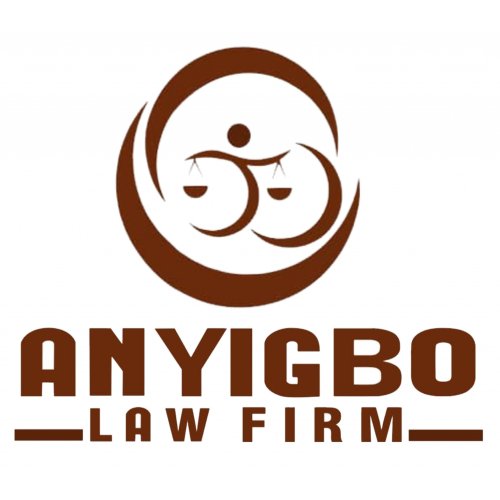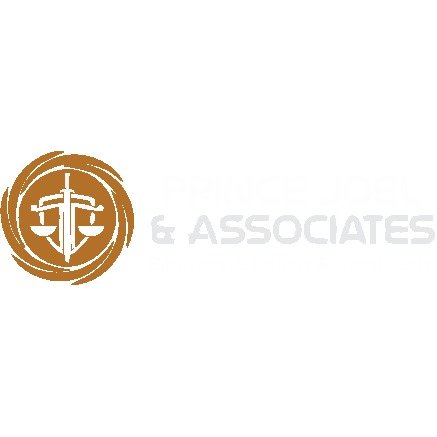Best Employment Rights Lawyers in Onitsha
Share your needs with us, get contacted by law firms.
Free. Takes 2 min.
List of the best lawyers in Onitsha, Nigeria
Nigeria Employment Rights Legal Questions answered by Lawyers
Browse our 2 legal questions about Employment Rights in Nigeria and read the lawyer answers, or ask your own questions for free.
- Employee Benefits not given 3 months after resignation
- The employee resigned and benefits had not been paid by the company after three months.
-
Lawyer answer by A.O AYENI & ASSOCIATES
This is actionable and can be enforced in court if the company refuses to pay even after writing a letter to them.
Read full answer - Next steps after suspension
- What can I do if my employer refused to call me back after serving suspension
-
Lawyer answer by Cabinet de Consultance et d'expertise juridique
Vous pouvez saisir l'organe en charge des litiges entre employeurs et employés.
Read full answer
Nigeria Employment Rights Legal Articles
Browse our 1 legal article about Employment Rights in Nigeria written by expert lawyers.
- Are Unwritten Employment Contracts Legally Valid and Enforceable in Nigeria?
- A contract of employment can exist whether orally or in writing. It can arise out of any discussion, obligation or instruction to do an act as far as the elements of a contract are present. Agreements are made to be honoured. An unwritten contract is enforceable provided it complies with... Read more →
About Employment Rights Law in Onitsha, Nigeria
In Nigeria, including the city of Onitsha, employment rights are protected under a combination of constitutional, statutory, and common laws. Some of the key principles include fair labour conditions, equal opportunity for all, non-discrimination, and rights and benefits like leave, pay and termination procedures. These rights include freedom from exploitive work conditions, right to fair remuneration and right to rest and leisure.
Why You May Need a Lawyer
Although the employment laws are designed to protect the rights of workers, understanding its intricacies can be challenging. Legal advice may be necessary if you feel that your rights have been violated, such as in cases of wrongful termination, unfair treatment, discrimination, sexual harassment, and more. A lawyer specialising in employment law can help you understand your rights, represent you in disputes, and negotiate settlements when necessary.
Local Laws Overview
The main laws governing employment in Nigeria includes the following: The Nigerian Constitution (as amended), Labor Act, National Minimum Wage Act, Trade Unions Act and the Employees Compensation Act. Also pertinent in Onitsha is the Anambra State Local Content Law, which ensures that indigenous businesses and workers are given priority in certain employment opportunities. It's also important to remember that customary rules and practices also play a significant role in local employment relationships.
Frequently Asked Questions
Is there a legal minimum wage in Onitsha?
Yes, the minimum wage in Nigeria is regulated by the National Minimum Wage Act. As of 2021, the minimum wage is set at 30,000 Naira per month.
Can I be dismissed without a valid reason?
No, an employer in Nigeria is required to have a fair reason for dismissing an employee. This typically involves some form of misconduct or underperformance. However, the exact terms of dismissal may be outlined in your individual employment contract.
Am I entitled to paid leave?
Yes, under the Labour Act, every worker is entitled to a minimum of five days of paid leave for every twelve months of continuous service.
What can I do if I believe my employment rights have been violated?
If you feel your employment rights have been violated, it is advisable to seek counsel with an employment lawyer. They can guide you through your options, which may include bringing a claim against your employer or negotiating a settlement.
Is it legal for employers to engage in discriminatory hiring practices?
No, the Nigerian Constitution prohibits discrimination on the grounds of race, ethnicity, sex, religion, or political opinion. This protection extends to all aspects of employment, including hiring, remuneration, and termination.
Additional Resources
For additional resources and information, consider visiting the websites of the Nigerian Ministry of Labour and Employment, the Nigeria Labour Congress, or the National Industrial Court of Nigeria. These entities provide resources that can further help you understand employment rights and laws in Nigeria.
Next Steps
If you believe your employment rights have been infringed and legal assistance is necessary, consider engaging with a legal professional who specializes in employment law. Ensure you gather all relevant documentation and evidence before your initial consultation to facilitate a smooth process.
Lawzana helps you find the best lawyers and law firms in Onitsha through a curated and pre-screened list of qualified legal professionals. Our platform offers rankings and detailed profiles of attorneys and law firms, allowing you to compare based on practice areas, including Employment Rights, experience, and client feedback.
Each profile includes a description of the firm's areas of practice, client reviews, team members and partners, year of establishment, spoken languages, office locations, contact information, social media presence, and any published articles or resources. Most firms on our platform speak English and are experienced in both local and international legal matters.
Get a quote from top-rated law firms in Onitsha, Nigeria — quickly, securely, and without unnecessary hassle.
Disclaimer:
The information provided on this page is for general informational purposes only and does not constitute legal advice. While we strive to ensure the accuracy and relevance of the content, legal information may change over time, and interpretations of the law can vary. You should always consult with a qualified legal professional for advice specific to your situation.
We disclaim all liability for actions taken or not taken based on the content of this page. If you believe any information is incorrect or outdated, please contact us, and we will review and update it where appropriate.










